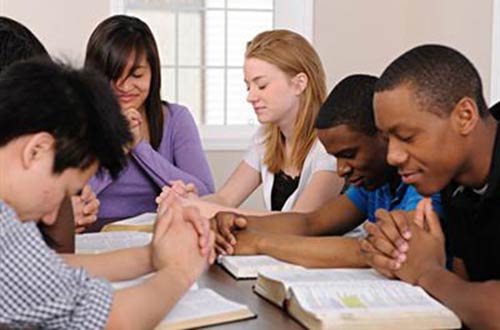The recent post on Common Worship led to my asking, “Why?” Why have common worship?
Obviously, if you are praying alone – you can do whatever you want. When you start praying together with another person, or as a group – well, that’s quite a different ball game.
Suddenly you meet innumerable decisions:
- When shall we pray?
- How long shall we pray?
- How shall we pray?
- Shall we read from the Bible? What shall we read? Who shall read it?
- Shall we sit, or stand, or hold hands, or change posture,…?
- Shall we sing? What shall we sing?
- Do we have a leader? How do we choose the leader?
- Can we pray about whatever we like? Are there limits, edges to the beliefs of this group?
- Can I pray for rain if you want fine weather? Can I pray that the Greens win the election?
- Can I read from the Book of Wisdom? The Didache?
- Do we read prayers together? The Lord’s Prayer (which version)? The Psalms (which version)?
Fair enough to those individuals and communities who advocate that more or less each meeting for prayer be freshly negotiated, that prayer together always be prepared de novo. Fair enough to those individuals and communities who advocate that the agreements in one group meeting for prayer have no impact on a different group meeting for prayer.
But an other approach is a reality for those of us who pray together daily, or pretty regularly, where a pattern evolves that works well. And this pattern – an agreement, as it were, written and/or developing tradition – isn’t set in stone, can be varied and adapted, and provides a framework for prayerful flexibility.
Followers of Jesus have been doing this from the beginning of the movement. [Just like other religious movements do]. In fact, they didn’t start de novo – Jesus and his first followers were already part of the tradition going back to Abraham and earlier. They adapted that tradition of common prayer.
Followers of Jesus (as time went by) decided
- which events to celebrate and when (Easter, Pentecost, Christmas…)
- which texts to read (the Bible is the collection of texts we agree we will read in common worship)
- what beliefs we will all hold (eg the Nicene Creed) and which beliefs are open to personal opinion
- etc…
So common worship isn’t merely each separate praying group starting from scratch. However we got to this, all Christians are preparing to celebrate Christmas, and it would raise eyebrows if a praying group suddenly insisted that they would celebrate the birth of Jesus on March 15 instead.
The question arises – how far do we extend this common prayer? Anglicanism has generally been defined as agreeing to quite a detailed practice and tradition of common worship, so that the readings in one community are the same as the readings in another, the responses are shared and known, the most important prayers (ordination, eucharistic,…) are agreed together… This includes to when one prays alone, one does so as part of the larger Christian community – inserting oneself into the stream of other Christians praying everywhere and throughout time (eg in the Daily Office).
In a small praying group, there is obviously an issue if we have all agreed together to do something when we worship in common, and then find that regularly the leader flouts those agreements. In NZ Anglicanism there is often very little that we have agreed to together. That is a discussion I think we need to have – why do we have such weak (confused, and confusing) agreements? What do we gain? What do we lose? And then there is the other issue that our leaders regularly flout these few agreements – even having vowed to them, and signed that this is what they will do.
If you appreciated this post, consider liking the liturgy facebook page, using the RSS feed, and/or signing up for a not-very-often email, …




Even the Mormons celebrate Christmas at this time with everyone else. Even though they believe that Jesus was actually born on 6 APR.
I grew up in a tradition that emphasized (1) that all people are individually connected directly to God and (2) that prayer should be spontaneous and contemporary.
Over the course of my adult life, I’ve come to feel that although I am indeed connected directly to God, it is only through my community that I can reach spiritual enlightenment and work out a meaningful purpose. I have also come to believe that liturgical prayers, corporately spoken, are useful touchstones for bringing people together, and that it feels wonderful when a group of diverse people are speaking aloud the same words as a commitment to a greater truth.